Executive Leadership
The College of Science is guided by a team of leaders, pioneers, scientists, entrepreneurs, teachers, writers and researchers. They influence thinking, inspire ideas and create new innovation.
Dean of the College
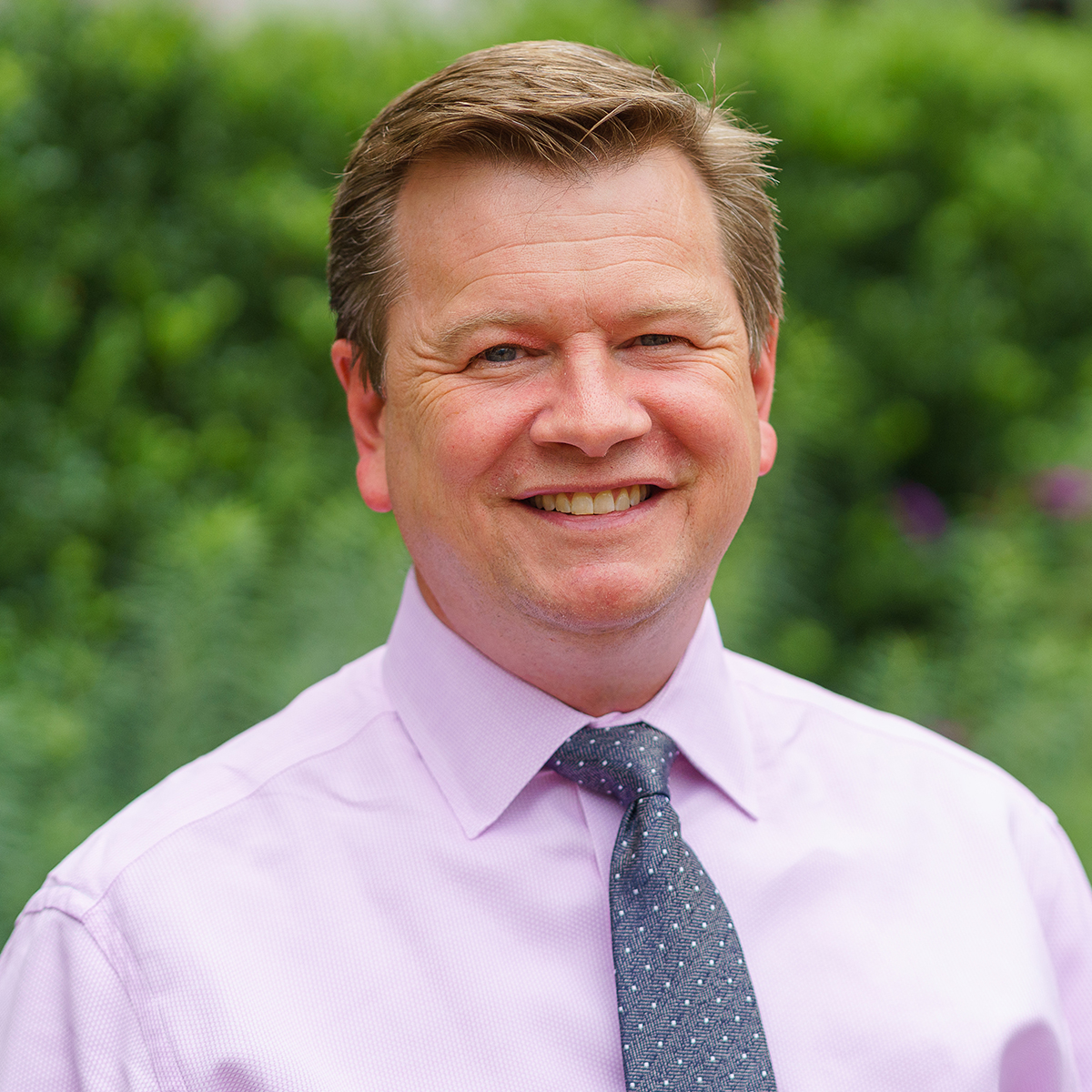
Brent Nelson, PhD
Interim Dean, College of Science
Brent Nelson was appointed interim dean of the College of Science in 2025. Since 2017, he served as Senior Associate Dean of Academic Affairs in the College, overseeing undergraduate curriculum, academic advising, and student success initiatives. His leadership contributed to significant achievements, including increasing undergraduate yield, expanding the Summer Bridge program for incoming underrepresented students, and establishing the Science Connects to Innovation Program, which empowers undergraduate science students to create entrepreneurial solutions to global challenges.
Dr. Nelson came to Northeastern in 2006 after having served as a postdoctoral fellow at the University of Pennsylvania and at the Michigan Center for Theoretical Physics in Ann Arbor, MI. He received his PhD in Physics from the University of California, Berkeley under the supervision of National Academy member Mary K. Gaillard.
A professor of physics, Dr. Nelson is a theoretical particle physicist whose work connects string theory to testable observations in high energy physics and cosmology. His 60+ scholarly publications over the last 20 years include highly-cited research into hadron collider phenomenology, supersymmetric model building, dark matter phenomenology, mathematical physics, and computational approaches to string theory.
With colleagues at Northeastern University, Dr. Nelson established the rapidly growing field of machine learning applications in theoretical particle physics, including the use of network science to study the vacuum selection problem, and the use of reinforcement learning as a tool to study the string landscape.
Associate Deans
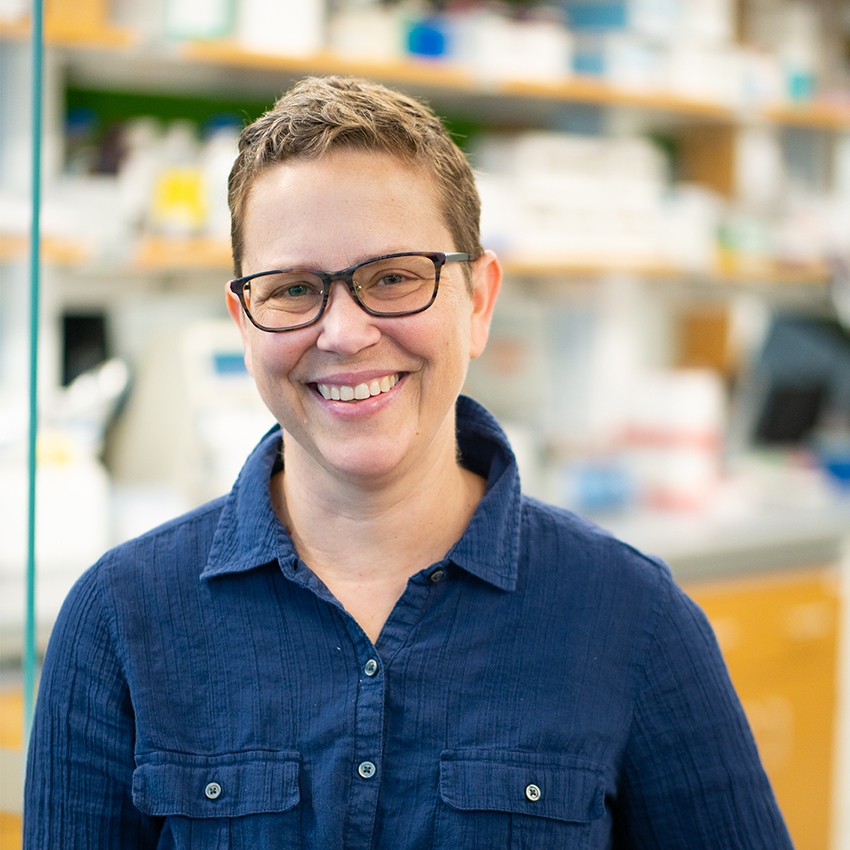
Erin Cram, PhD
Associate Dean for Research
Erin Cram was appointed Associate Dean for Research in 2020. As a member of the College of Science Executive Leadership team, Dr. Cram provides creative, goal-oriented leadership for funding research-based initiatives, including PhD training. She also provides strategic planning for grant proposals, identifies funding and award opportunities, communicates success stories, and promotes entrepreneurship.
Dr. Cram is a professor of biology. She earned her BS in Biology from the University of North Carolina, Chapel Hill, where she discovered her love of scientific research. She received the PhD in Molecular Cell Biology at the University of California, Berkeley, where she studied cell cycle regulation by potential chemotherapeutic compounds. She joined the Department of Biology as an assistant professor in 2006 after Her postdoctoral studies at Princeton University on the network regulation of cell migration. An award-winning scientist and educator, Dr. Cram is committed to building diverse and interdisciplinary research teams. Her current research is at intersection of cell biology and engineering, with a major focus on how mechanical forces are sensed and interpreted by cells.
Through her work with the Office of Undergraduate Research and Fellowships, as Director of Graduate Studies for Biology, and as a mentor to early career faculty, Dr. Cram has supported our students and faculty as they attain the highest levels of excellence in research.

Tara Duffy, PhD
Associate Dean for Belonging
Tara Duffy joined the College of Science Executive Leadership team as Associate Dean for Belonging in 2024. Dr. Duffy is an ocean scientist, with expertise in conservation, coastal and marine habitat assessment, fisheries, and interdisciplinary research. She is a Teaching Professor in the Department of Marine and Environmental Sciences (MES), teaching courses in marine sciences, oceanography, food security and sustainability, and science communication and has been Faculty Head of the Three Seas Program since 2019. She earned the Ph.D. in Marine and Atmospheric Sciences from Stony Brook University in 2004.
Dr. Duffy has been a leader in MES DEI initiatives – making exemplary contributions to promoting respect and belonging, including an Unlearning Racism in the Geosciences pod, an Anti-Racism reading group, and You Are Welcome Here workshops.
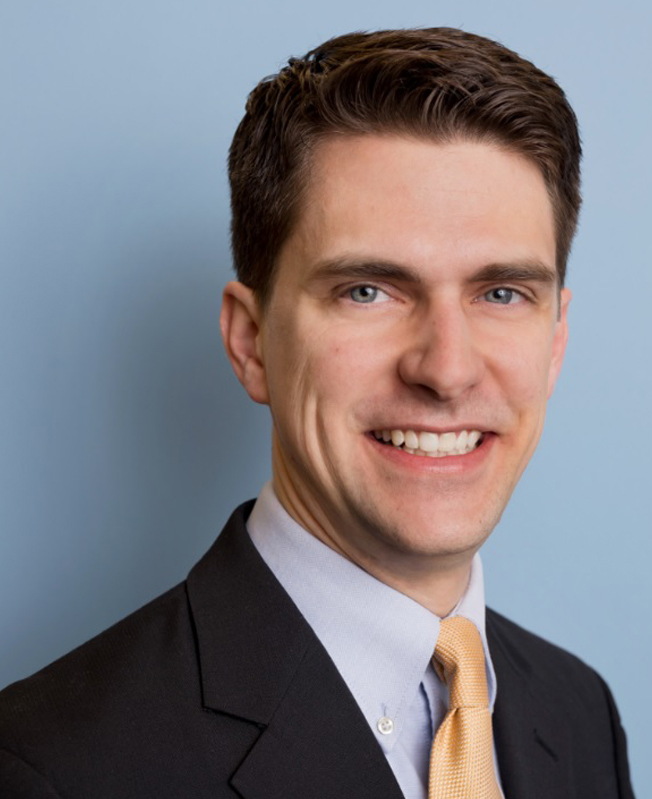
Sam Inman, MBA
Associate Dean of Administration and Finance
Sam Inman serves on the College of Science Executive Leadership team as the Associate Dean of Administration and Finance. Sam initially joined COS as Director of Finance and Operations in 2020, a role charged with overseeing financial planning, data and analytics, space planning, and operations within the Dean’s Office.
Inman, who earned his MBA from George Washington University School of Business, joined COS with a decade of higher education and nonprofit management experience, including six years of experience at R1 research universities. In addition, he worked as a higher education consultant, working with several public and private universities on operational strategy and implementation projects. In these positions, Sam garnered experience leading or managing high-impact process improvement efforts, capital projects/renovations, and strategic planning exercises.
In his role as Associate Dean of Administration and Finance, Inman is responsible for leading the College’s finance, human resources, research administration, and operations teams, and working closely with the Dean and other Associate Deans on strategic projects for the College.
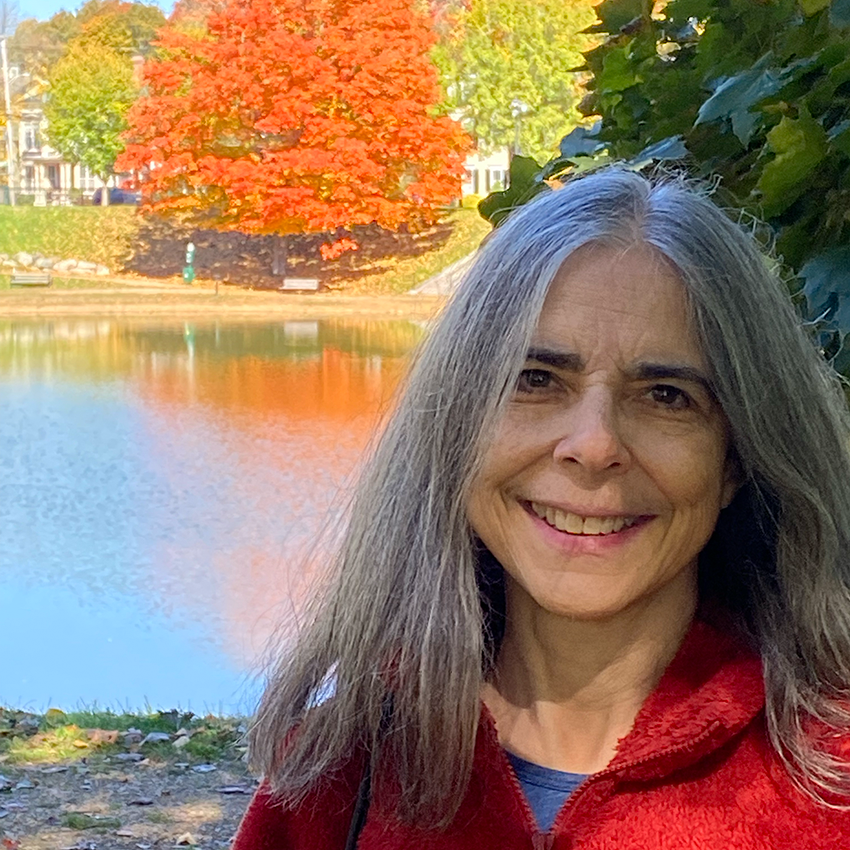
Carla Mattos, PhD
Associate Dean for PhD Programs and Graduate Affairs
Carla Mattos joined the College of Science Executive Leadership team in 2022. Dr. Mattos received her BA in Chemistry from Clark University and her PhD in Chemistry from the Massachusetts Institute of Technology. She did postdoctoral work at Harvard University as a Bunting Institute of Radcliffe College Fellow and at Brandeis University, supported by the American Cancer Society.
Dr. Mattos was the recipient of the Boroughs Wellcome Fund New Investigator Award in the Pharmacological Sciences, an National Science Foundation CAREER Award, the Presidential Early Career Award for Scientists and Engineers, and runs a well-funded research group studying cancer-related proteins. Her research focuses on protein structure, dynamics and biochemistry with particular emphasis on Ras and related GTPases and their interactions with binding partners. She has been engaged as a consultant for several companies working on targeting Ras against human cancers.
Dr. Mattos brings to the Dean’s Office years of experience as Director of Graduate Studies for Chemistry and Chemical Biology at Northeastern. In this role, she helped build a strong graduate student association, focused on increasing student diversity in the PhD program, and built student support programs such as Peers Offering Peers Support and monthly Diversity Discussions. She is committed to innovative graduate and professional programs for student training and advancement as expert and creative problem solvers in a challenging and continually changing world.
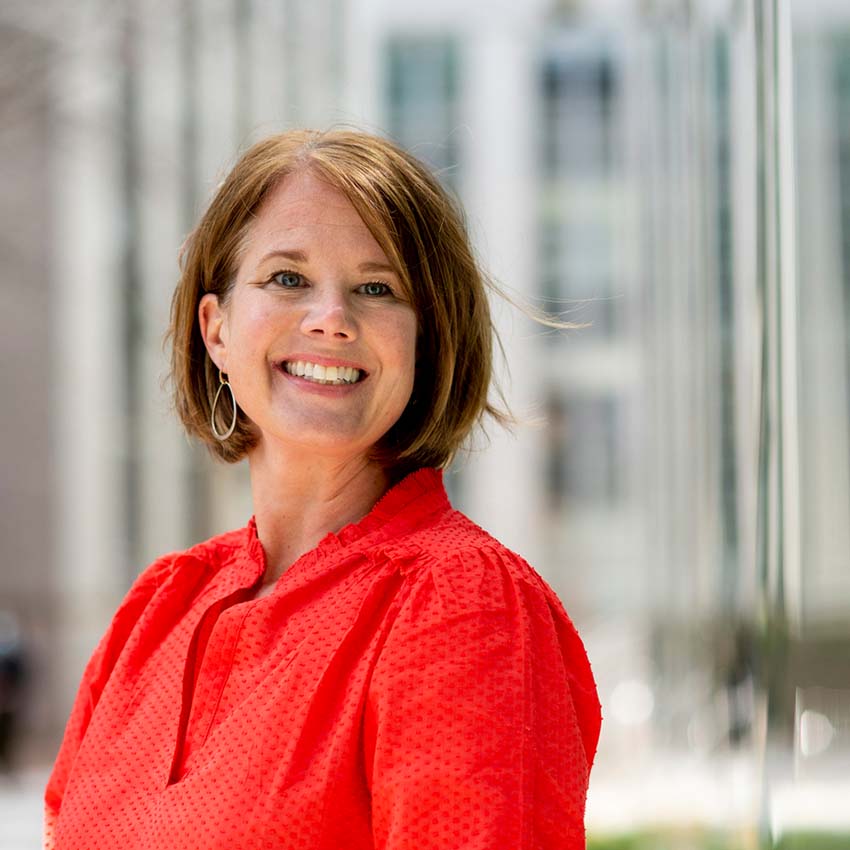
Missy McElligott, PhD
Interim Associate Dean for Undergraduate Affairs
Missy McElligott joined the College of Science Executive Leadership team in 2025. In this role, Dr. McElligott oversees undergraduate curriculum, academic advising, and student success initiatives—ensuring our undergraduate students continue to benefit from exceptional learning and research experiences.
Dr. McElligott is a teaching professor and director of undergraduate studies in the Department of Biology. She earned the PhD in Biology from Northeastern University, exploring how neural networks in the brainstem mediate locomotion in vertebrates. More recently, she has focused her work on curriculum design, evidence-based pedagogies, and community-based instruction.
An innovative and engaging educator, Dr. McElligott is deeply committed to inclusive instruction and to fostering a learning environment where all students feel a sense of belonging. Through her work with the Biology Undergraduate Curriculum Committee, she has played a key role in designing, enhancing, and evaluating undergraduate programs that reflect the breadth and interconnectedness of the life sciences. Her efforts ensure that students are exceptionally well-prepared to meet the evolving challenges of medicine, biotechnology, and life science research.
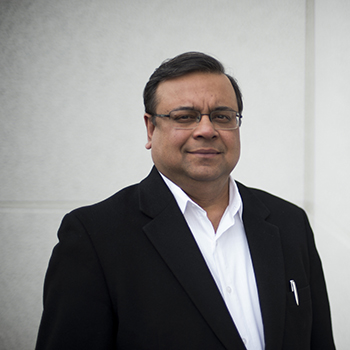
Sanjeev Mukerjee, PhD
Associate Dean for the Global University
Sanjeev Mukerjee joined the College of Science Executive Leadership team in 2024. As the first College of Science Associate Dean for the Global University, Dr. Mukerjee focuses on College of Science global strategy, assesses our global data and programs, connects with Northeastern global campuses, and seeks opportunities in various global regions.
Dr. Mukerjee is Distinguished Professor of Chemistry and Chemical Biology and an affiliated faculty member of the Department of Chemical Engineering. Dr. Mukerjee received his PhD from Texas A&M University and joined Northeastern in 1998. He is director of the Center for Renewable Energy Technology and its subset the Laboratory for Electrochemical Advanced Power (LEAP). The center aims to enhance education and research on all aspects of renewable energy and green chemistry with special emphasis on selective charge transfer at electrochemical and photo-electrochemical interfaces.
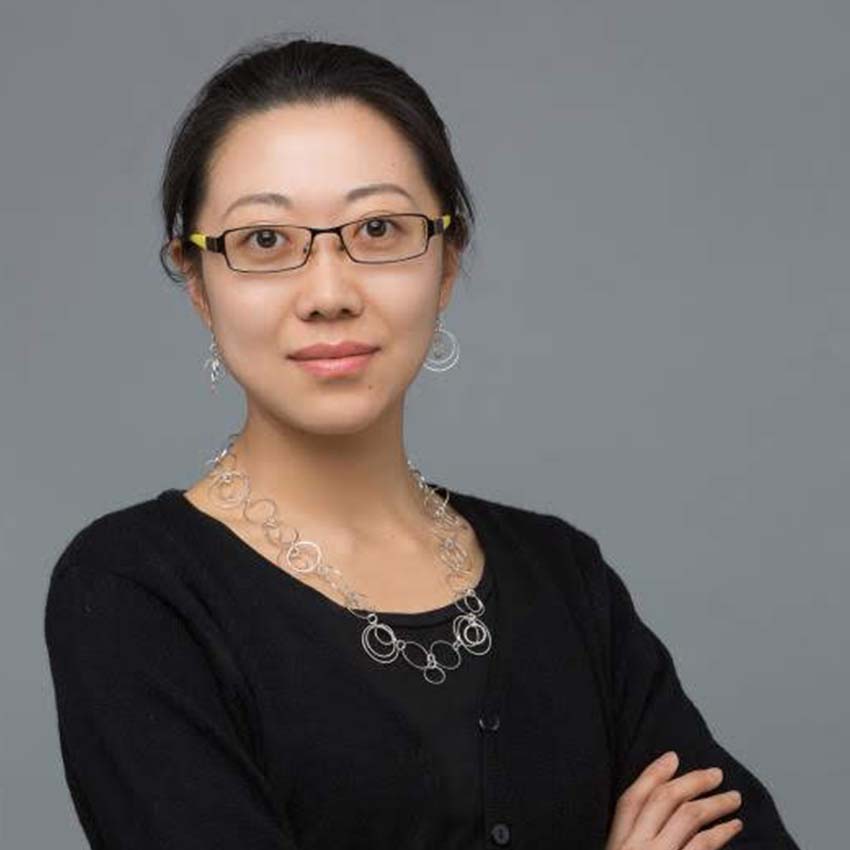
Tracy Tan, EdD
Associate Dean for MS Education and Lifelong Learning
Tracy Tan joined the College of Science Executive Leadership team in 2025 to advance MS education across the College of Science, guiding our efforts to prepare students to thrive in an ever-evolving global landscape. Since joining the College of Science in 2021 as Assistant Dean of Professional Programs, Tracy has played a pivotal role in strengthening and expanding our MS portfolio. She led the successful launch and growth of high-demand master’s programs across Northeastern’s Boston campus and global network, including Cell and Gene Therapies, Nanomedicine, and Biotechnology and Bioinformatics in Toronto and Oakland.
With over 20 years of professional experience in higher education, including a decade in leadership and administrative roles at Harvard University and MIT, Tracy is a proven leader in graduate education. Throughout her career, she has launched innovative academic initiatives, managed global program portfolios, overseen complex operations, and built strategic international partnerships. She holds a master’s degree in Intercultural Relations, an MBA from Boston University, and an Ed.D. from Northeastern University.
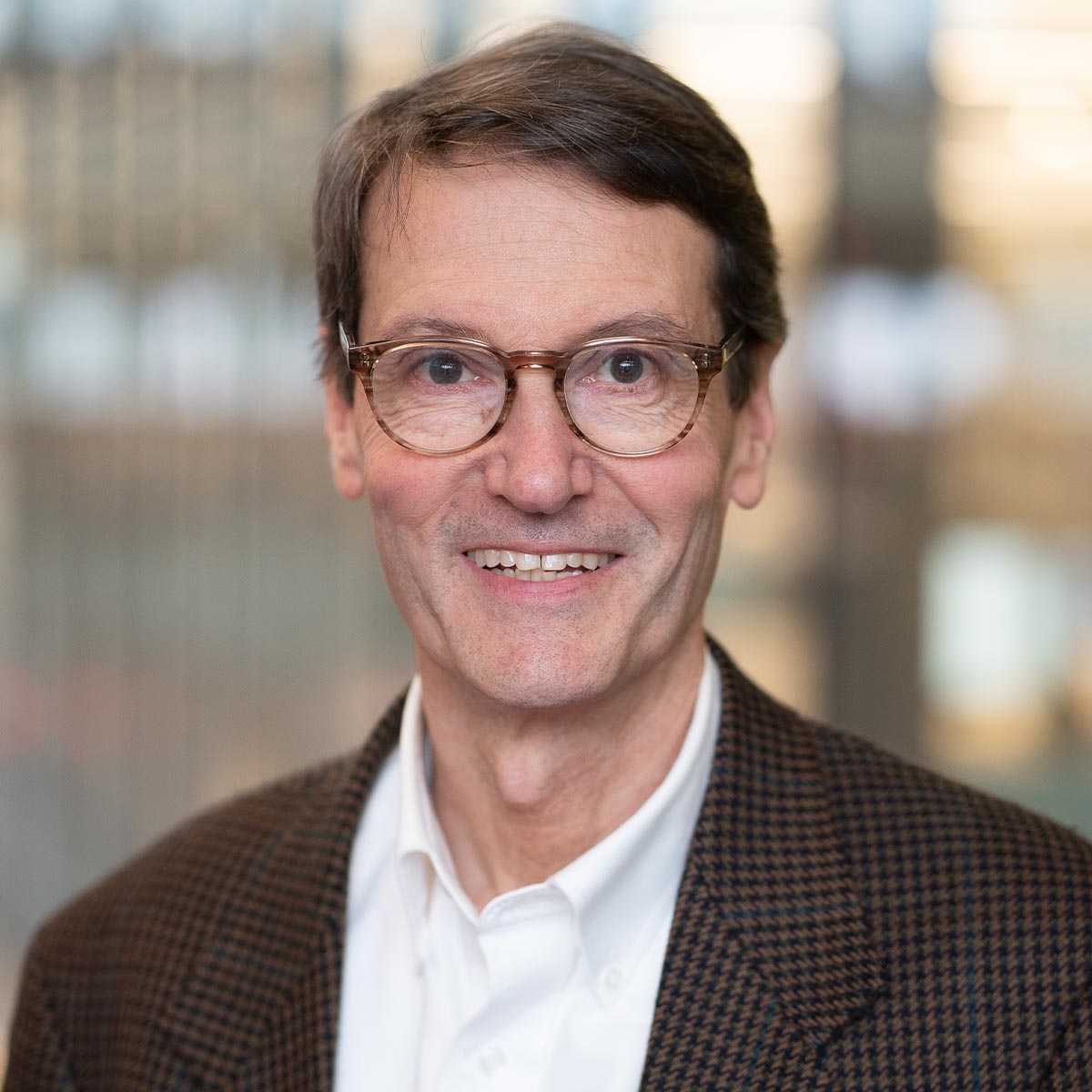
Darien Wood, PhD
Associate Dean for Faculty Affairs
Darien Wood, professor of physics, joined the Executive Leadership Team as Associate Dean for Faculty Affairs in 2024. As Associate Dean, Dr. Wood provides leadership in all faculty hiring, tenure, promotion, sabbaticals, mentoring, and professional development of our more than 340 esteemed faculty.
Dr. Wood received the PhD in Physics from the University of California, Berkeley and his expertise lies experimental particle physics, Higgs boson, high energy collisions of protons and antiprotons, muons, W and Z bosons.
Prior to joining Northeastern in 1995, Dr. Wood worked on key projects including the DØ experiment at the Fermilab Tevatron collider and the UA2 experiment at CERN, both dedicated to the study of proton-antiproton collisions. Most recently at Northeastern, his research has focused on high energy (13 TeV) collisions of protons with the CMS experiment at the Large Hadron Collider at CERN in Geneva, Switzerland. In particular, he is studying events which contain a Z boson and a large amount of missing transverse momentum.
Academic Chairs
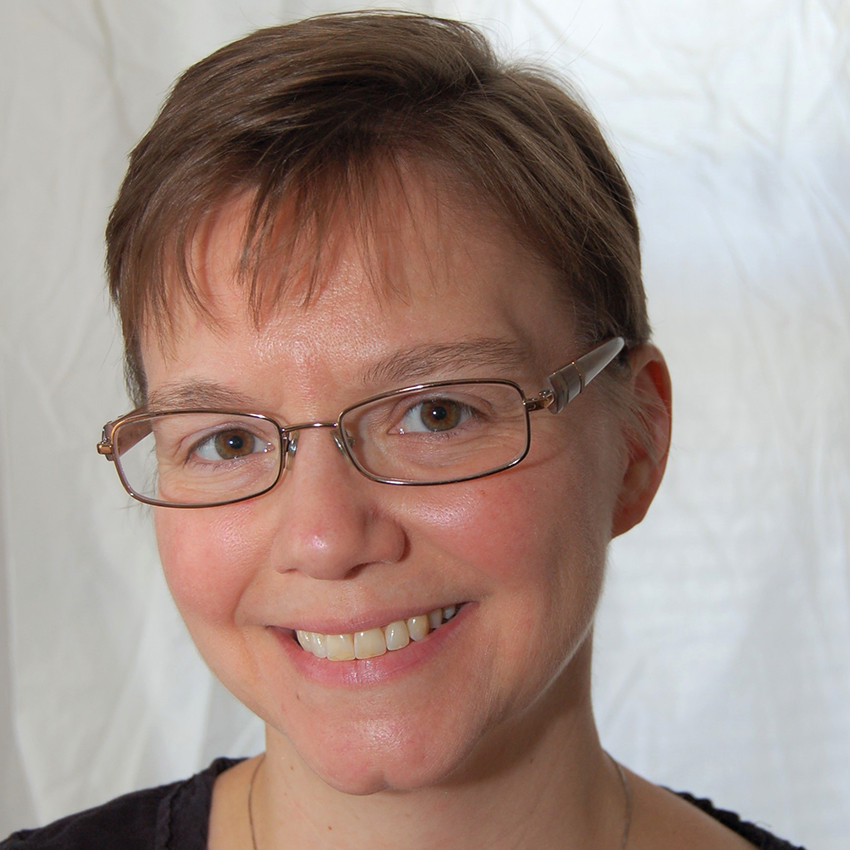
Penny Beuning, PhD
Chair, Department of Chemistry and Chemical Biology
Penny Beuning came to Northeastern in 2006 and was appointed Department Chair in 2020. Dr. Beuning completed her doctorate at the University of Minnesota and conducted post-doctoral work at the University of Minnesota and MIT. She has been the recipient of the Camille and Henry Dreyfus Foundation New Faculty Award, a Cottrell Scholar, an American Cancer Society Research Scholar and the recipient of an National Science Foundation CAREER Award, among other accolades.
Her research aims to determine how cells respond to DNA damage and maintain the accuracy of genetic information. As part of this work, she aims to develop DNA damage tolerance enzymes and DNA repair proteins as tools for biotechnology applications. Her lab also seeks to determine fundamental aspects of enzyme function that can be applied to protein engineering, focusing on enzymes involved in cellular metabolism.

Ken Duffy, PhD
Chair, Department of Mathematics
Ken Duffy joined Northeastern in 2023 with a joint appointment in the Department of Mathematics and the Department of Electrical and Computer Engineering, of which he previously served as interim chair.
Dr. Duffy holds a PhD in Mathematics from Trinity College Dublin. He was previously a professor at National University of Ireland, Maynooth, where he was the director of the Hamilton Institute, an applied mathematics research center, from 2016 to 2022. He was one of three co-directors of the Science Foundation Ireland Centre for Research Training in Foundations of Data Science, which has funded more than 120 PhD students.
Dr. Duffy works in works collaborative multi-disciplinary teams to design, analyze, and realize algorithms using tools from probability and statistics. Algorithms he has developed have been implemented in digital circuits and in DNA. He is a co-founder of the Royal Statistical Society’s Applied Probability Section (2011), co-authored a cover article of Trends in Cell Biology (2012), is a winner of a best paper award at the IEEE International Conference on Communications (2015), the best paper award from IEEE Transactions on Network Science and Engineering (2019), the best research demo award from COMSNETS (2022), the best demo award from COMSNETS (2023), and the IEEE Military Communications Conference Fred W. Ellersick award for best unclassified paper (2024).
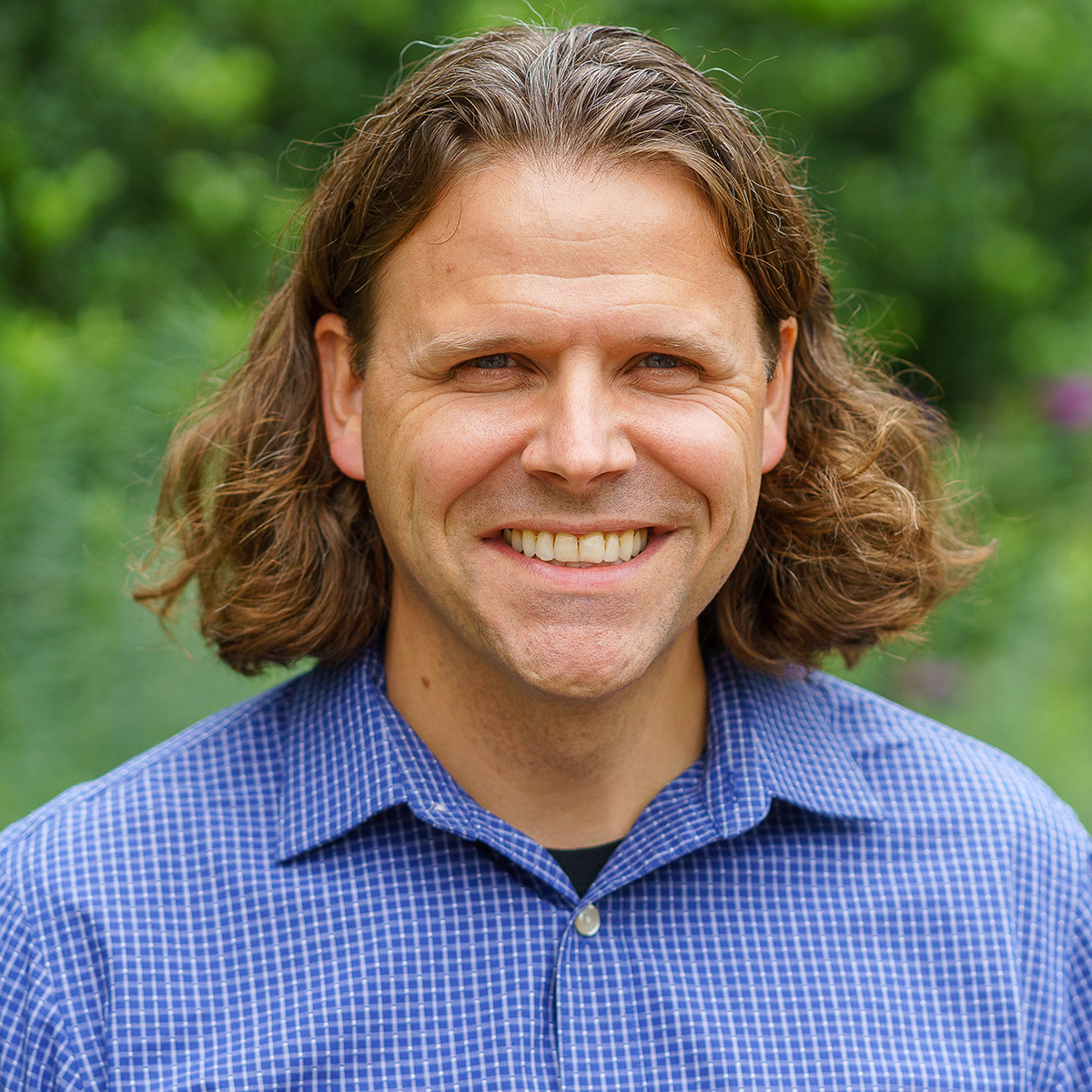
James Monaghan, PhD
Chair, Department of Biology
James Monaghan joined the Department of Biology in 2012 and was appointed Department Chair in 2024.
Dr. Monaghan received the PhD in Biology from the University of Kentucky. His current research in the Monaghan Lab studies how axolotls regrow severed limbs and repair injured organs with the goal of understanding the cellular and molecular underpinnings of regeneration that can one day be applied to treating injuries and disease in humans. Dr. Monaghan also serves as the director of the Institute for Chemical Imaging of Living Systems where an interdisciplinary team of researchers develop imaging tools to highlight chemical processes—enabling clinicians to better diagnose and treat disease. His research has helped secure 15 externally funded awards and four internal awards and has published over 50 manuscripts in his field.
An dedicated educator to students at all stages in their education, Dr. Monaghan is a recipient of the University Excellence in Teaching Award and COS Excellence in Teaching Award, supporting over 75 undergraduate researchers in his laboratory and 11 PhD trainees. He is passionate about preparing his students with the necessary skills to succeed throughout their academic and professional journeys.
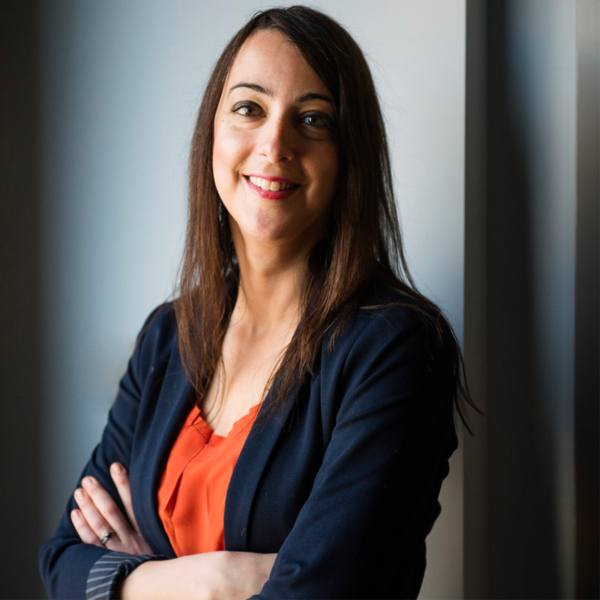
Rebecca Shansky, PhD
Chair, Department of Psychology
Rebecca Shansky joined the Department of Psychology faculty in 2011 and was appointed Department Chair in 2025.
Dr. Shansky earned her PhD in Neurobiology from Yale University in 2004, after which she completed postdoctoral work at Rockefeller University and the Mount Sinai School of Medicine. She directs the NIH-funded Laboratory of Neuroanatomy and Behavior, where her team uses rodent models to study sex differences in brain structure and function, focusing on the neural circuits that mediate stress, pain, and trauma processing. Dr. Shansky is also known for her vocal advocacy for consideration of sex as a biological variable in basic science research, promoting the practice as a critical step towards better informed personalized medicine.

Geoffrey Trussell, PhD
Chair, Department of Marine and Environmental Sciences
Geoffrey Trussell was appointed Chair of the Department of Marine and Environmental Sciences in 2012.
Dr. Trussell earned his PhD in Marine Science at the College of William and Mary was a Mellon Foundation Postdoctoral at Brown University. He joined Northeastern as an Assistant Professor of Biology in 2002 and was based at the Marine Science Center. He became the director of the Marine Science Center in 2009, holds a joint appointment in the Department of Civil and Environmental Engineering, became vice president of the Nahant, MA campus operations in 2016, and was named director of the Coastal Sustainability Institute (CSI) in 2017. In 2020, Dr. Trussell was elected as a Fellow of the American Association for the Advancement of Science.
A highly collaborative researcher, Dr. Trussell’s research program currently focuses on a number of important issues in evolutionary, community and ecosystem ecology. His work emphasizes the evolutionary and ecological significance of predation risk, with an emphasis on the evolution of phenotypic plasticity and inducible defenses, the ecological significance of predation risk, and the influence of trait-mediated indirect interactions on community dynamics and ecosystem function. In addition, as director of CSI he is devoted to promoting sustainability science research that focuses on advancing knowledge and developing solutions for cleaner, safer, smarter and more equitable coastal communities.

Mark Williams, PhD
Chair, Department of Physics
Mark Williams was appointed Chair of the Department of Physics in 2017.
Dr. Williams earned his PhD in Physics from the University of Minnesota, where he also completed postdoctoral work in Biophysics. He came to Northeastern in 2001, and in 2003 he earned a Research Corporation Research Innovation Award as well as a National Science Foundation CAREER Award. He became a Fellow in the American Physical Society in 2012.
The Williams Lab specializes in the development of single molecule methods for quantitatively probing the biophysical properties of DNA and RNA and for understanding the biophysics of their interactions with proteins and other DNA binding ligands. Dr. William’s research lab has made major contributions in several areas of science, including Molecular mechanisms of HIV-1 replication interactions; Thermodynamics and structural dynamics of small molecule binding to DNA; Eukaryotic nuclear regulatory proteins and nucleosome dynamics; and Mechanisms of DNA binding by proteins from model bacterial and bacteriophage replication systems.